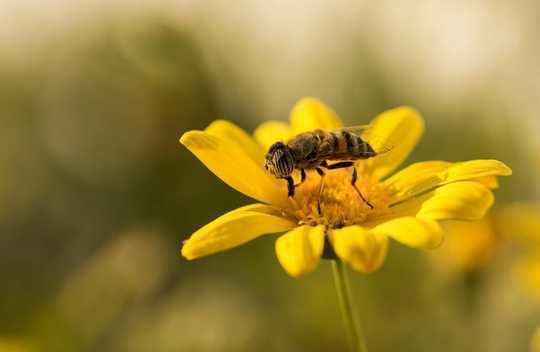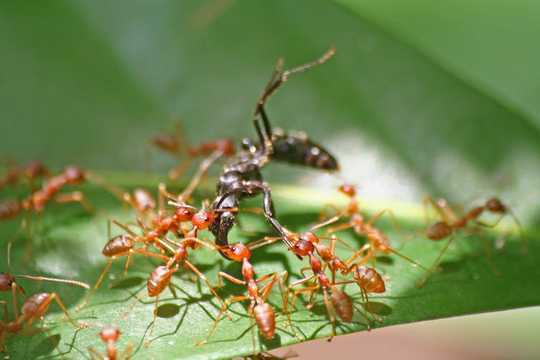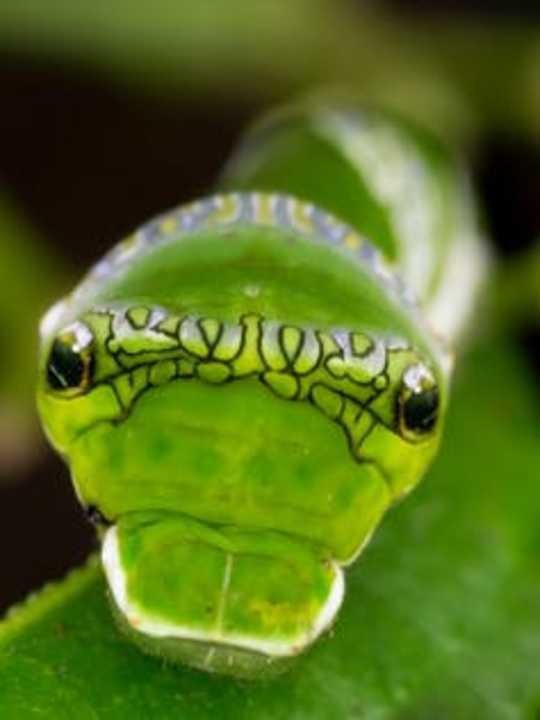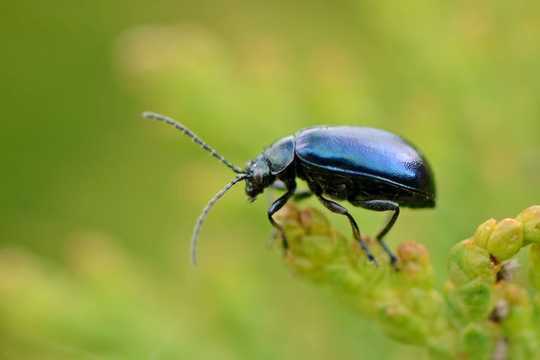Insects, which include more than a million known species, represent roughly two-thirds of the described biodiversity on Earth. But they have a big PR problem – many think of insects as little more than crop-eating, disease-carrying jumper-munchers. But in reality, species fitting this bill are but a tiny part of an enormous picture.
A dominant narrative has emerged in an effort to clear the good name of our six-legged friends. Insects are the unsung heroes, the little things that run the world. This fact is undeniable. Insects are critical to the existence of the world as we know it, whether through pollinating plants, controlling populations of agricultural pests, or helping with the decomposition of animal waste.
These numerous benefits provided by our environment are known as ecosystem services. A widely cited paper from 2006 estimates that these insect services are worth an annual US$57 billion to the US economy alone. These valuations are an important step in starting conversations about the importance of insect conservation.
However economic arguments can only take us so far.
Get The Latest By Email
 Just doing its bit for the economy. Ramón Portellano, CC BY
Just doing its bit for the economy. Ramón Portellano, CC BY
Imagine a field of tomatoes. For an appreciable harvest flowers must be pollinated. To achieve this farmers might choose to enlist the help of native pollinators by setting aside part of their land for flowering plants.
In some cases this works exceptionally well. For instance, a recent paper has shown that converting 5-8% of arable land to pollinator habitat supports greater or equivalent crop yields, even after accounting for loss of field area.
But how much insect diversity do we need to support ecosystem services? Generally speaking, a more diverse species assemblage means higher levels of functioning. Keeping with our pollinator analogy, we might find that two species of bee can provide a greater service of pollination than one species – even if the overall numbers of bees are the same. A three-species community might perform better still.
But not every species plays an equally important economic role and the presence of a dozen rarer bee species may provide no additional monetary benefit. Recent research shows the majority of pollination services of agricultural crops by wild bees are performed by a tiny handful of species; the authors argue that crop pollination is not a sufficient argument to justify bee conservation. This exemplifies the danger of relying too heavily on economic arguments. If we only worry about the species which provide us a given service, we risk losing a large amount of diversity.
‘But what do they do for us?’
I am asked this question frequently. Its ubiquity provides two important pieces of information. The first is great news: the public recognises that insects are key components of our ecosystems. The second piece is concerning. It shows that we’re not doing enough to demonstrate that insects have any real “purpose” aside from some service to humans. And, given the overwhelming diversity in the insect world, it’s likely there are many species which don’t ever make a significant contribution to our lives.
 Working for themselves – not humans. Axel Rouvin, CC BY
Working for themselves – not humans. Axel Rouvin, CC BY
There are many ways that one can advocate the importance of those insects. One can correctly suggest that insects are vital links in food webs. Or that by having multiple species present there is insurance for providing services when systems are disturbed. But there is a simple solution which is hugely successful in encouraging people to value insect conservation: getting them to learn more about insects.
Beautiful, mysterious, wonderful
Rather than focusing primarily on their functional value, we could instead place a greater emphasis on sharing the fascinating behaviour and wonderful appearances commonplace in the insect world. Once people become better acquainted with these qualities, they fall in love. And when people love something, they will fight for its protection regardless of whether or not it contributes to the provision of a particular ecosystem service.
Insects can make us laugh, like the fuzzy caterpillars within the genus Megalopyge. These ridiculous-looking larvae are covered in irritating hairs used to deter predators. One especially fuzzy species has been often likened to the hairstyle of a certain presidential-hopeful. Or consider the chirping call of lesser water boatman males. This species calls at over 100 decibels, as loud as a car horn. It produces this noise with its genitalia.
 Caterpillar … or pretend snake? William Warby, CC BY
Caterpillar … or pretend snake? William Warby, CC BY
Insects often surprise us. When you’re as tiny as an insect, everything seems to want to eat you. Insects have evolved endless strategies to avoid this unfortunate fact. For instance, bombardier beetles fend off enemies by blasting a boiling chemical cocktail from their abdomen, and some species of hawk-moth caterpillars do a truly convincing impression of a snake.
The closer we look at the world around us, the more wonderful pieces of natural history we discover. When we experience the fascinating world of insects firsthand, the dominant dialogue of “insects as ecosystem service providers” begins to shift. Instead, we start to recognise the beauty, mystery and wonder of the insect world for what it is: beautiful, mysterious and wonderful. Through building a stronger appreciation of the important inherent value of insect biodiversity, hopefully “what do they do for us?” will share more space with “what can we do for them?”.![]()
About The Author
Paul Manning, DPhil Student in Zoology, University of Oxford
This article is republished from The Conversation under a Creative Commons license. Read the original article.
books_gardening









